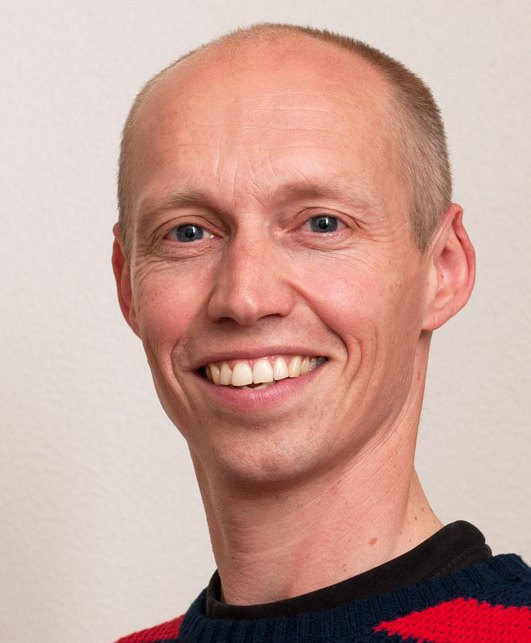Interview with professor Søren Riis Paludan: An EU grant of DKK 4 million euro strengthens my field of research internationally
Professor Søren Riis Paludan is the coordinator of the Horizon 2020 project “Training network providing cutting-EDGE knowlEDGE on Herpes Virology and Immunology" (EDGE). EDGE is an Innovation Training Network (ITN) in the Marie Curie programme in the Excellent Science section. The project has received almost € 4 million to train the next generation of researchers to find solutions to the prevention and treatment of herpes virus infections.

In the following, Søren Riis Paludan talks about the background for the project and about the advantages and a few disadvantages of this type of EU grants. Read more about the project here.
Importance of EU grants
Søren Riis Paludan believes that the grant allows him to engage in research for which it would otherwise not be possible to find the time or the resources. 'Our partnerships are strengthened when there is a specific project, which is externally funded. You create a strong network across sectors, and you get the chance to train young and enthusiastic researchers'.
Søren Riis Paludan already has a strong international network, but the EU grant means that he is able to formalize his network. As a result, AU's international position is also strengthened, he believes. 'For the specific research field it means that Europe can work on or focus on a well-defined area. And results can be obtained more quickly; results that have an impact on public health, and thus also on the economy. In research you often have a few dabs here and there, which means that the development takes a long time," says the professor.
Internally at AU, an EU grant is also important. Søren Riis Paludan feels that it is easier to be heard by the management and that he is now asked for advice.
But there are also negative aspects to EU funding. For instance, the Commission has an incredibly demanding reporting system, which takes a long time to get acquainted with and to satisfy. The system is based on control rather than on trust. Our project therefore employs a person on a half-time basis to keep track of rules and conditions. In Denmark such things are much more easy to work with and are - to a great extent - based on trust, says Søren Riis Paludan.
Background for Research Project
Herpes viruses are very common and may cause lifelong infections. Herpes virus impairs the quality of life and is expensive for our society in terms of days lost through sickness and expenses for treatment.
Our project is about Herpes virology and immunology. We hope to come to know even more about what happens when people get herpes infections. We expect to acquire a more fundamental understanding of viruses and the immune system with a view to developing vaccines, clinical use, etc. (See appendix for further details)
Project Objectives: 1) To make basic finds, which means that we can put preventive work in progress and possibly develop a vaccine. 2) To leave our marks for future research, so that in about 10 years from now, scientists will say that their results derive from this project.
Project Organisation
The core - and the organisation - of the project is an interactive PhD training network.
Five countries (Denmark, Germany, the UK, the Netherlands and Italy) and eight universities are participating in the project. We have a total of 15 PhD students. Half of the project participants have two PhD students, and the other half only have one. Nevertheless, AU has two and Aarhus University Hospital has two, so in overall terms Aarhus University has four PhD students in this training network.
Basically, we regard this as a large project, but it is divided into sub-projects, so that each (university?) has its own field. There is much interaction and exchange of people, and each student spends 20 percent of his or her time with one of the other partner organisations. So there is a fine exchange between the sectors. The PhD students are exposed to the other sectors (industry and hospitals) and will subsequently be able to work in all three sectors. They acquire important contacts abroad and are able to establish a strong international network. Typically, it is hard to persuade people from the academic sector to transfer to other sectors. But due to our project, they are better prepared for work in all sectors.
Project Status
The project is presently in the start-up phase, where we plan and recruit students. The PhD students began last October with a kick-off meeting. Therefore, it is impossible to say at this point in time how much their fellowships have gained from this project. But the project has certainly already strengthened the research network within this field.
Facts
Time frame: 2016-05-01 to 2020-04-30.
Overall financial figures: EUR 3,961,943.28.
EU contribution: EUR 3,961,943.28.
Researcher in charge of project: Professor Søren Riis Paludan, Aarhus University, Denmark.